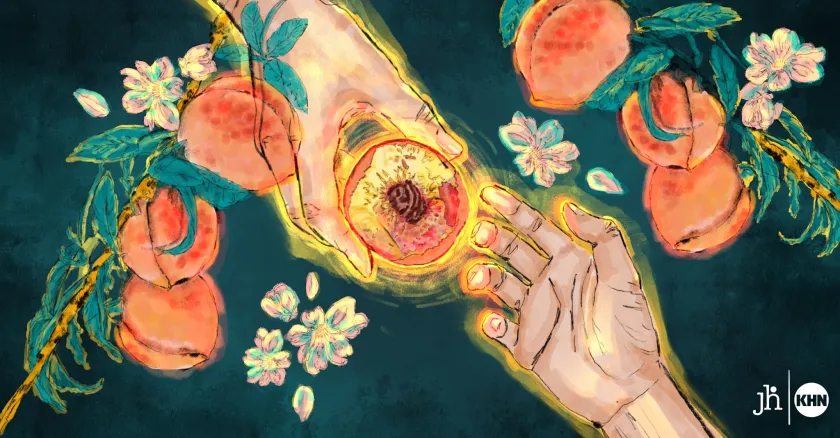NMU Native American Studies Professor Martin Reinhardt is featured in the most recent "American Diagnosis" podcast episode titled "Reclaiming Native Food Traditions to Nourish Indigenous People." Through his previous Decolonizing Diet Project at NMU, Reinhardt had found that traditional foods can significantly improve the health of Native American people prone to diabetes and other chronic illnesses.
Colonization, forced relocations and, later, highly processed foods fundamentally reshaped the diet of many Indigenous people. The effects of those changes have rippled through generations, according to the podcast introduction. Now, Indigenous people are twice as likely to have diabetes as white Americans, according to a 2017 CDC report.
For one year, Reinhardt and 25 research subjects ate foods that grew or could be hunted in the region before Europeans came to the Americas. These included wild rice, cranberries, corn, squash, maple syrup, venison and fish. He found that the diet led to weight loss, a decrease in “bad cholesterol” and triglycerides, and lowered blood glucose levels, as well as raised vitamin levels.
“The Decolonizing Diet Project proved that eating Indigenous foods could achieve great health outcomes, which our community badly needs,” Reinhardt said in an article on the research. “These foods are something we've had for thousands of years. They were our relatives. They sustained our ancestors and helped them thrive.”
The fourth season of the "American Diagnosis" podcast is a collaboration of Kaiser Health News and Just Human Productions. It is a multi-episode conversation with leaders, scholars, health workers, historians and poets about the resilience of Indigenous peoples in the U.S. taking action to protect their health and well-being.
Titled "Rezilience: Surviving Manifest Destiny," the season charts the impact of decades of adversity and asks hard questions about why Native people have had to confront so many challenges to their health. Listen to the the second episode featuring Reinhardt here. His segment begins at about the 9:30 mark.

